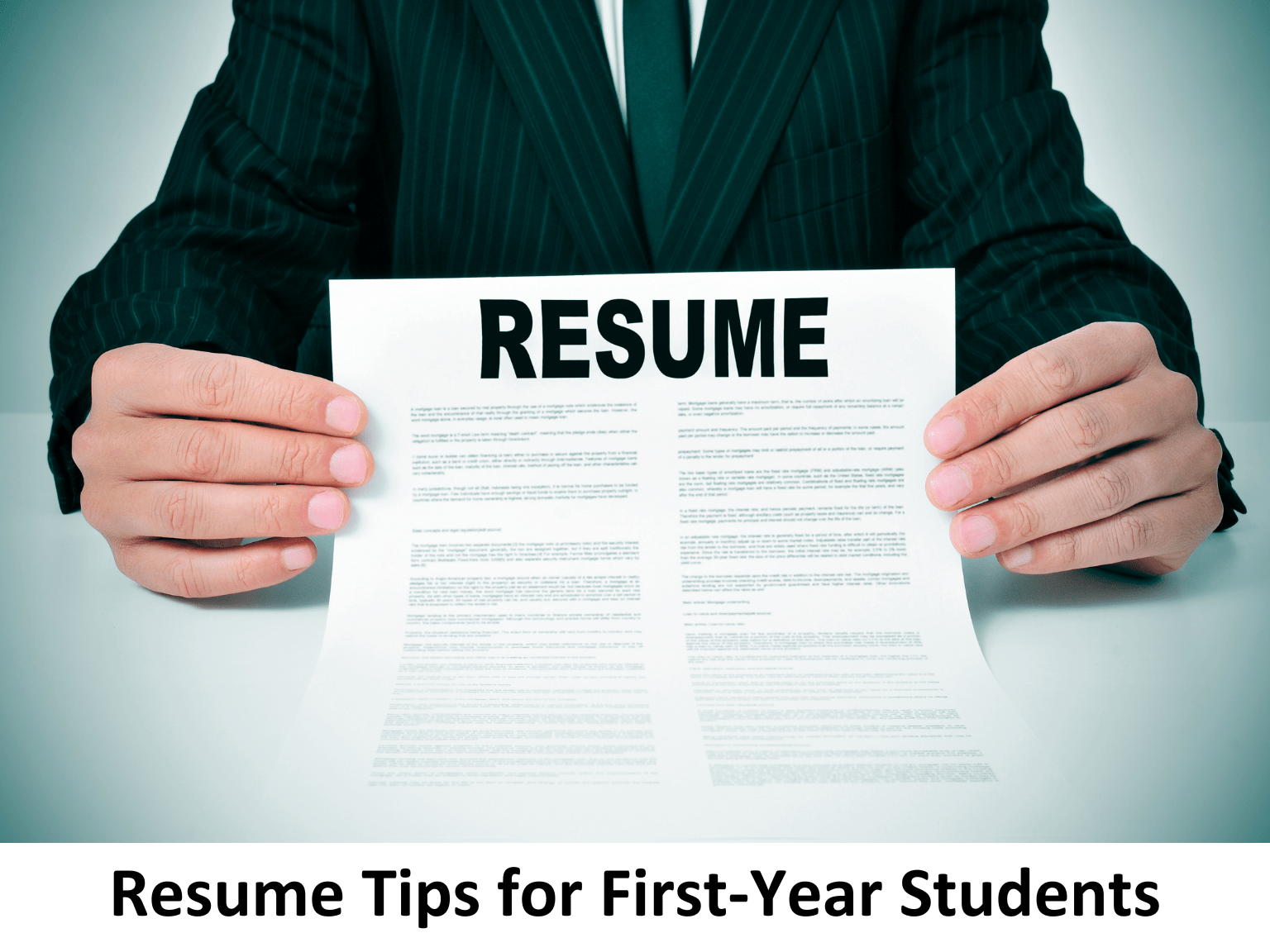
The Career Services staff hopes you are enjoying your first semester of your college career. There is a lot of adjusting to do from a new schedule, rigorous classes, living away from home for the first time, and getting more involved on campus. While you may think you have plenty of time to worry about your career planning, we recommend you start working on your resume now! This is a great time to get your document created and reviewed, so when it comes time to apply for an internship, co-operative educational experience, or a full-time job, you will have your resume ready to go! Here are some helpful tips to get your resume started:
- Why start working on your resume now? It is incredibly important to get comfortable representing your accomplishments in writing (and verbally for future interviews). Doing this will help you keep track of your involvements on campus, your academic accomplishments like relevant courses and applicable projects, and it will help you better understand your interests to help you craft your professional goals. Your resume is a document that should evolve as you move further into your academic and professional career. Have a living document of your accomplishments and skills so you can easily recount important details when you engage with employers who are interested in your past experiences.
- Use the Career Services resources – If you are unsure about how to start building your resume, visit ERAU’s Career Services website and Handshake, our career management platform, to see sample resumes for each degree program. This will give you an idea of how to format your resume and will allow you to see what employers are looking for on these professional documents. You can schedule an appointment with your program manager via Handshake for advice regarding resume-building and resume critiques.
- Get Organized – Documenting your academic and professional achievements and activities are essential to having a strong resume. Create a Master Resume following the subject guidelines below. A Master Resume is a longer more detailed version of your resume that you can continue adding to as you move along in your career journey. You can pull relevant information from this document to create a resume that closely matches the position description for each employer; this is the best way to stand out among other candidates applying for the same internships and jobs. There are some differences among the various degree programs on campus, but generally every resume should cover these areas:
- Objective/Professional Summary (Optional)
- Education (can include relevant coursework)
- Project Experience
- Work Experience
- Skills
- Leadership
- Awards/Honors
- Formatting Matters – The appearance of your resume is very important because it is often the first impression an employer has of you. If it appears disorganized or is difficult to navigate, it might cause the employer to lose interest or it might shift the employers’ focus from your resume content to its lack of organization. Do not use a pre-made resume template on Google, Word, Canva, or other platforms. You should try and keep your document to a single page. Make sure to keep your format consistent throughout the document. Avoid fancy or hard-to-read fonts and use between 10–12-point font (except your name – which should be 14–18-point font). You can also consider boldening or capitalizing section headings to make them stand out.
Remember building your resume takes time and a lot of thought. Focus on the basics of resume writing your first year and move into targeting and tailoring your resume in subsequent years. Be sure to give yourself grace and time to learn how to craft a strong resume. You never know, your first internship could be just around the corner – better start preparing today. For more information about how to write and format your resume, visit the Career Services resource page here: Resume Resources.
